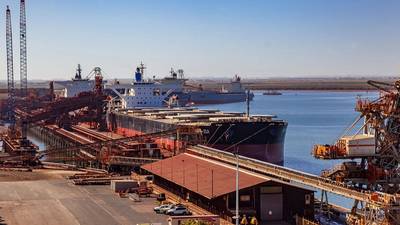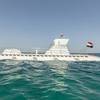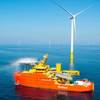Tech File: H-Glide Structural Bearings for Extreme Environs
Custom-fabricated structural bearings are being introduced by Hercules Engineering for extremely high stress applications in structures requiring outstanding load-bearing performance, even in compact or wet spaces in applications such as ports loaders, land and marine logistics and resources exploration and processing structures.
The latest Herculon structural bearings are manufactured by integrating H-Glide fiber-reinforced composite pads sliding on 2B finish stainless steel to achieve an exceptionally low sliding coefficient of friction compared with other engineering bearing materials, even under water in structures such as wind, wave and tidal power generators.
The H-Glide bearing pads are dry sliding and will not release contaminants into surrounding environments or adjacent processes. “H-Glide’s excellent sliding properties (including friction coefficients from 0.05 – 0.1) are invaluable to infrastructure developers, engineers, architects and specifiers because lower coefficients of friction will transfer less stress onto the load-bearing structural components when the bearing does its job of protecting them against surrounding movement,” said David Booty, Manager, Hercules Engineering (a division of Cut To Size Plastics Pty Ltd). “With their incompressible H-Glide sliding layer, these bearings can withstand extreme point pressures of 350-500 megapascals, depending on bearing design and application.”
Some relevant applications include:
- Oil process and production platform applications
- Maritime and logistics structures, port and rail facilities, water and wastewater environments.
- Energy structures, including wind, wave and tidal power generators.
“This type of composite bearing does not require lubrication, which minimizes disruption to processes,” said Booty.
The H-Glide bearing pad is available in different formulations, including conductive materials. It is suitable for a wide variety of high-load structures requiring extreme load-bearing capability combined with non 'stick-slip' behaviour, where static and kinetic coefficient of sliding friction are virtually equal.
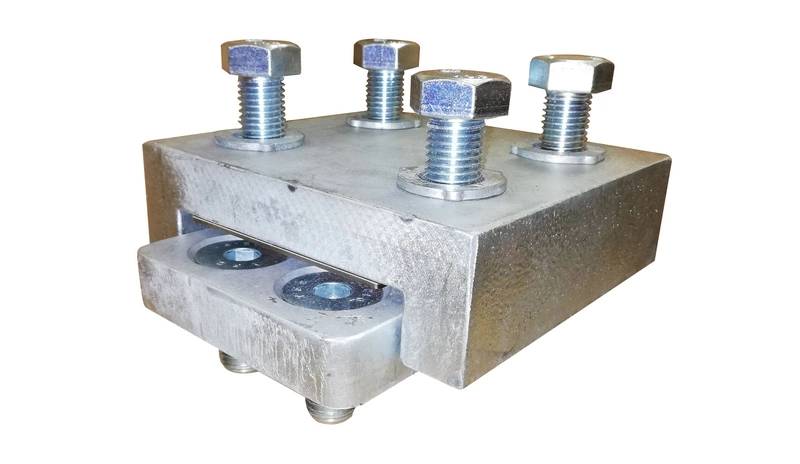
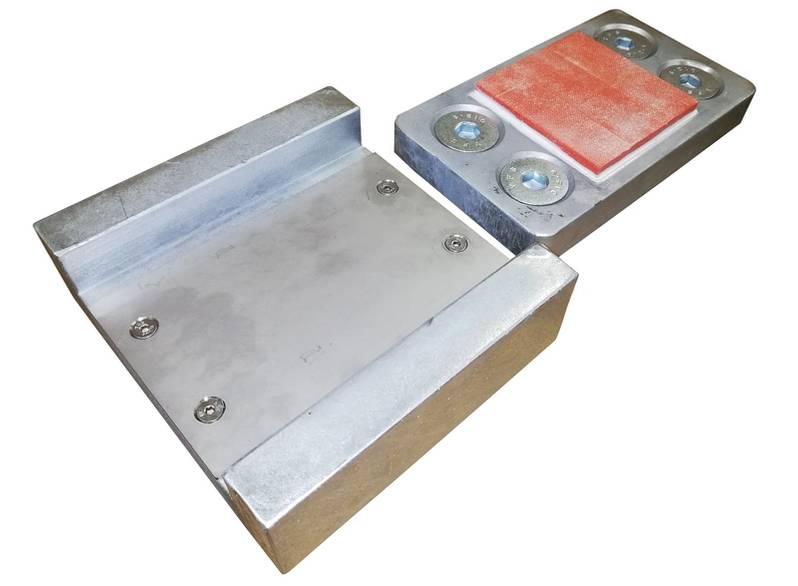 H-Glide technolgy is being incorporated into Herculon structural bearings custom-fabricated for extreme loads. The material is proven internationally. Photo: Hercules Engineering
H-Glide technolgy is being incorporated into Herculon structural bearings custom-fabricated for extreme loads. The material is proven internationally. Photo: Hercules Engineering



